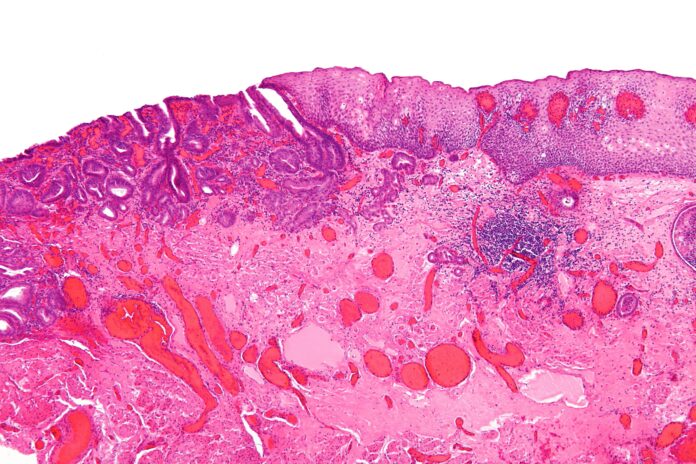
Esophageal cancer is a type of cancer that affects the esophagus, which is the tube that carries food from the mouth to the stomach. It is a serious condition that can be difficult to diagnose in its early stages. However, understanding the symptoms of esophageal cancer can help in early detection and treatment.
In this article, we will discuss the common symptoms of esophageal cancer. It is essential to note that experiencing these symptoms does not necessarily mean that you have esophageal cancer, but it is crucial to consult a healthcare professional if you are experiencing any of these symptoms.
Difficulty Swallowing (Dysphagia)
One of the most common symptoms of esophageal cancer is difficulty swallowing, also known as dysphagia. This can occur when the tumor in the esophagus grows and obstructs the passage of food and liquids. The feeling of food sticking in the throat or chest can be a sign of dysphagia. It is important to seek medical attention if you are experiencing persistent difficulty swallowing, as it can be a sign of a serious underlying condition such as esophageal cancer.
Unintentional Weight Loss
Unintentional weight loss is another symptom that may indicate esophageal cancer. When the tumor affects the esophagus, it may lead to a decreased appetite and difficulty in eating, which can result in weight loss. If you notice an unexplained and significant weight loss without any changes in your diet or exercise routine, it is essential to consult a healthcare professional for an accurate diagnosis.
Chest Pain or Pressure
Esophageal cancer can cause chest pain or pressure, especially when swallowing. This symptom is often described as a burning sensation or discomfort in the chest that may worsen when eating or drinking. It is crucial to seek medical attention if you are experiencing persistent chest pain, as it can be indicative of various conditions, including esophageal cancer.
Chronic Heartburn or Indigestion
Chronic heartburn or indigestion that does not improve with over-the-counter medications can be a sign of esophageal cancer. The persistent reflux of stomach acid into the esophagus can lead to irritation and inflammation, increasing the risk of developing esophageal cancer. If you are experiencing frequent heartburn or indigestion, it is important to consult a healthcare professional for proper evaluation and management.
Hoarseness
Hoarseness or a persistent change in the voice can be a symptom of esophageal cancer, especially if it is not associated with a cold or flu. The tumor in the esophagus can put pressure on the recurrent laryngeal nerve, leading to changes in vocal quality. If you are experiencing prolonged hoarseness, it is essential to seek medical attention for further assessment.
Coughing or Throat Pain
Coughing or throat pain that does not improve with time can be a sign of esophageal cancer. The tumor in the esophagus can irritate the throat, leading to persistent coughing or discomfort. If you are experiencing prolonged coughing or throat pain, it is essential to consult a healthcare professional for proper evaluation and management.
Fatigue
Fatigue is a common symptom in many types of cancer, including esophageal cancer. The body’s immune system works tirelessly to fight the cancer cells, leading to an increased level of fatigue. If you are feeling unusually tired or fatigued, it is important to consult a healthcare professional for a comprehensive evaluation.
Wheezing
Wheezing or difficulty breathing can be a sign of esophageal cancer as the tumor may press against the windpipe, causing breathing difficulties. If you are experiencing persistent wheezing, it is essential to seek medical attention for proper assessment and management.
Regurgitation
Regurgitation, which is the backflow of food or liquid from the esophagus to the mouth, can be a symptom of esophageal cancer. This can occur due to the obstruction caused by the tumor, leading to regurgitation of food and saliva. It is important to consult a healthcare professional if you are experiencing persistent regurgitation.
Blood in Stool or Vomit
Blood in the stool or vomit can be a sign of esophageal cancer, especially if it is dark or tarry in appearance. The presence of blood can indicate bleeding in the digestive tract, which may be related to the tumor in the esophagus. If you notice blood in your stool or vomit, it is important to seek immediate medical attention for proper evaluation and management.












